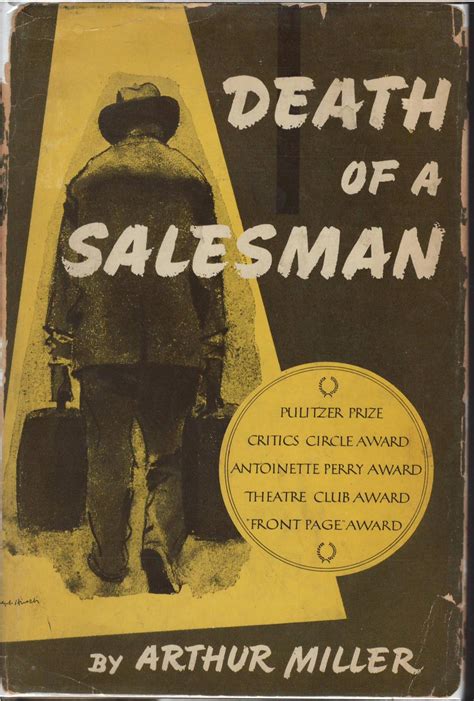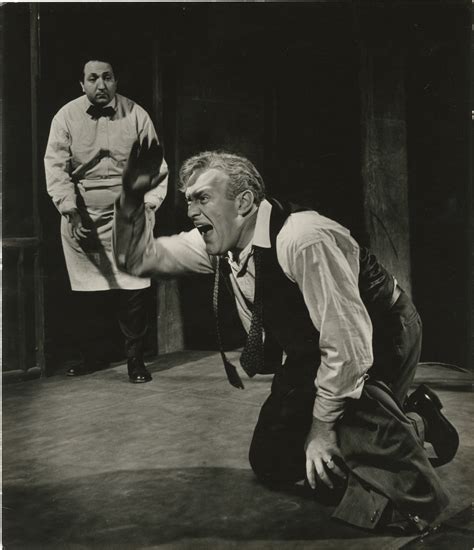The concept of the American Dream has been a prevailing theme in literature, and one play that masterfully explores this idea is Arthur Miller’s “Death of a Salesman.” Written in 1949, this Pulitzer Prize-winning play tells the story of Willy Loman, a struggling salesman who becomes disillusioned with his life and the ideology of the American Dream. Through Willy’s tragic tale, Miller critiques the notion of the American Dream, revealing its flaws and the devastating consequences it can have on individuals and society.
At its core, the American Dream represents the idea that anyone, regardless of their background or circumstances, can achieve success and prosperity through hard work and determination. However, Miller argues that this dream is often unattainable and can lead to a sense of disillusionment and disappointment. Willy Loman, the protagonist of the play, is a prime example of this. Despite his tireless efforts to succeed as a salesman, Willy is unable to achieve the financial stability and respect he so desperately desires. His failure to attain the American Dream leads to a sense of shame, inadequacy, and ultimately, tragedy.
One of the primary ways Miller critiques the American Dream is through Willy’s character. Willy is a complex and multifaceted character, full of contradictions and flaws. On the one hand, he is a charismatic and confident individual, able to charm his way into people’s hearts. On the other hand, he is also insecure, arrogant, and often delusional. Willy’s flaws are largely a result of his misguided pursuit of the American Dream. He has bought into the idea that success is solely dependent on being well-liked and having a charismatic personality, rather than hard work and dedication.
Willy’s obsession with the American Dream also leads to a distorted view of reality. He often confuses his imagination with reality, creating a false narrative about his life and his relationships. For example, Willy’s memories of his brother Ben, who became a successful businessman, are distorted and romanticized. Willy believes that Ben’s success is due to his personality and charm, rather than his intelligence and hard work. This distorted view of reality leads Willy to make poor decisions and to prioritize his image over his actual well-being.
Another way Miller critiques the American Dream is through the character of Willy’s son, Biff. Biff is a disillusioned and cynical young man, who has become disenchanted with the idea of the American Dream. He sees through his father’s illusions and is aware of the harsh realities of the business world. Biff’s character serves as a foil to Willy’s, highlighting the flaws in Willy’s ideology and the devastating consequences of chasing an unattainable dream.
The play also explores the theme of identity and how it is shaped by societal expectations. Willy’s sense of identity is deeply tied to his profession as a salesman. He believes that his worth as a person is measured by his ability to sell and his popularity with others. When he is no longer able to perform as a salesman, Willy’s sense of identity begins to crumble. This is reflected in his dressing room speech, where he laments the fact that he is no longer able to provide for his family and is no longer respected by his peers.
Furthermore, the play highlights the tension between individual desire and societal expectations. Willy’s desire for success and recognition is at odds with the harsh realities of the business world. He is expected to conform to certain standards and norms, rather than pursuing his own desires and interests. This tension leads to a sense of frustration and disillusionment, as Willy is forced to compromise his values and aspirations in order to fit in.
In addition, Miller explores the theme of the past and its impact on the present. Willy’s past experiences and memories are deeply intertwined with his present circumstances. His memories of his brother Ben and his father serve as a reminder of his own failures and disappointments. The play suggests that the past is inescapable and that it continues to shape our present and future.
The play’s use of symbolism also adds depth and complexity to the narrative. The character of Charley, Willy’s next-door neighbor, serves as a symbol of the American Dream. Charley is a successful businessman who has achieved financial stability and respect. However, he is also portrayed as lonely and unfulfilled, highlighting the emptiness and superficiality of the American Dream.
The character of Linda, Willy’s wife, serves as a symbol of reality and practicality. She is the voice of reason in the play, often providing a grounding and realistic perspective on the family’s circumstances. Her character serves as a foil to Willy’s, highlighting the flaws in his ideology and the need for a more practical and realistic approach to life.
In conclusion, “Death of a Salesman” is a powerful critique of the American Dream. Through Willy’s tragic tale, Miller reveals the flaws and devastating consequences of chasing an unattainable dream. The play highlights the tension between individual desire and societal expectations, the impact of the past on the present, and the emptiness and superficiality of the American Dream. As a masterpiece of American literature, “Death of a Salesman” continues to resonate with audiences today, serving as a reminder of the importance of critically evaluating our values and aspirations.
One of the key insights from the play is that the American Dream is often unattainable and can lead to a sense of disillusionment and disappointment. This is reflected in Willy's character, who is a complex and multifaceted individual, full of contradictions and flaws.
How to Critique the American Dream

- Examine the flaws in the ideology of the American Dream, such as its emphasis on personality and charm over hard work and dedication.
- Analyze the impact of the past on the present and how it shapes our values and aspirations.
- Evaluate the tension between individual desire and societal expectations and how it can lead to frustration and disillusionment.
- Consider the emptiness and superficiality of the American Dream and how it can lead to a sense of unfulfillment and disappointment.
What is the main theme of “Death of a Salesman”?
+The main theme of “Death of a Salesman” is the critique of the American Dream and its impact on individuals and society.
What is Willy’s flaws in the play?
+Willy’s flaws in the play include his obsession with the American Dream, his distorted view of reality, and his prioritization of his image over his actual well-being.
What is the significance of the character of Charley in the play?
+The character of Charley serves as a symbol of the American Dream, highlighting its emptiness and superficiality.


